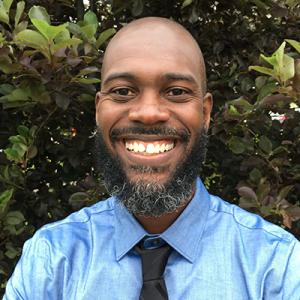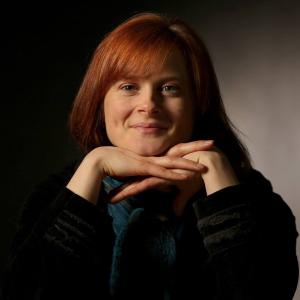When David Saunders-Scott began his college studies at Macalester College in 1998, he had little firsthand experience with racism after growing up in Jamaica. As a freshman, he recalled, he went to a meeting of the Black Liberation Affairs Committee on campus. After the meeting, he and a fellow student from the African country of Sierra Leone were scratching their heads. They were new to this country and couldn’t relate to what the students at the BLAC meeting were talking about.
“We just thought they were being rebels without a cause. We hadn’t seen that kind of racism and experienced that in our countries,” said Saunders-Scott, an associate professor in Viterbo’s psychology department. “There was a time when I believed that racism was no longer a problem in this country.”
The longer he was in this country, though, the more he realized there are deeply entrenched issues of racial inequity and social injustice in America. When those issues boiled over this summer after the killing of George Floyd, Saunders-Scott decided he would put off his research on the link between anxiety and the human microbiome and spend his summer as co-chair of Viterbo’s newly formed Combatting Racism and Injustice working group.
Saunders-Scott was joined by co-chair Michelle Pinzl, an assistant professor in Viterbo’s department of English and world languages, along with 28 other Viterbo employees. The mission was to review racism and injustice at Viterbo and produce proposals to create a more equitable and justice-centered campus.
“First, the group is striving to promote equity and justice at this university,” Saunders-Scott said. “And second, the group is striving to cultivate an educational culture of racial and social justice and equity, so that all students will learn the value in striving to be anti-racist, anti-sexist, anti-homophobia, anti-xenophobic, anti-hate, anti-spiteful, and anti-self-destructive.”
The CRI group was broken into five subcommittees tackling diverse aspects of social injustice:
- Creating new training and programming
- Reviewing and compiling existing university documents
- Reviewing curriculum
- Reviewing hate/bias response, reporting, and policies
- Determining actions that promote policy change to dismantle racism.
By the time summer was over, the CRI group had established four priorities on which to focus: employee training, hate/bias incident response, staffing and compensation, and changing institutional climate and culture.
Viterbo President Glena Temple and the university Cabinet strongly endorsed the CRI group’s push for anti-racism training for all employees, starting with in-service training and continuing through the year.
The university also is updating its employee handbook with a hate/bias and discrimination policy, has drafted a proposal for a hate/bias incident response team, and has added a hate/bias incident response form to the Viterbo Speaks Up webpage.
The CRI group also recommended appointing Diversity Committee liaisons to the Faculty Council, Employee Assembly, and President’s Advisory Council to address equity and justice concerns. It also is recommending creation of a new position: executive director of diversity and inclusion/special advisor to the cabinet. The work of establishing the liaisons is under way, and Pinzl and Saunders-Scott will take on some of the duties to be taken on through the executive director position, on an interim basis.
Among the CRI group recommendations on changing the institutional climate was a suggestion to move away from using the language of diversity and inclusion (which imply that some groups are “other” and don’t belong) and toward language of equity and social justice, along with looking at the visual culture of Viterbo, including both the campus and website.
The results of the CRI group’s work over the summer was front and center as employees prepared for the new school year, with most of the first in-service day devoted to sessions on the CRI’s work as well as inequity and social injustice presentations and discussions.
The day kicked off with Saunders-Scott talking about an observation made by author James Baldwin during a 1965 debate with William F. Buckley about whether “the American Dream is at the expense of the American Negro.” Talking about an Alabama sheriff who assaulted a Black woman with a cattle prod in quelling a protest, Baldwin said what had happened to that sheriff was in some ways much worse than what happened to the woman he assaulted.
As Saunders-Scott explained, Baldwin was saying that society had failed the sheriff, had let him grow up blind to the humanity of the woman he attacked, filled with hatred of “the other.”
“I use this framework and, in particular, the importance of these experiences when I think about the kind of educational system that is required to prepare students to embrace and realize the richness of living in a racially and culturally diverse world,” Saunders-Scott said. “If students leave here not knowing the truth that all groups of people are equal, regardless of our cultural or socially constructed difference and that there is value in embracing the richness and beauty of our differences, then we have failed our students.”
Pinzl and Saunders-Scott both said they were encouraged by the high level of in-service participation and the feedback they got from participants. “It was a great step forward that so many employees were present,” Pinzl said. “We started off with some powerful words coming from David, and I think it very much impacted those who listened. I heard that personally from colleagues.”
For Saunders-Scott, it was a foot in the door, a good start, and while it’s said that “talk is cheap,” more talk is what’s desperately needed. “What I would want is to have more conversation,” Saunders-Scott said. “There’s so much that we have in common if we can just connect on a personal level and try to get a better understanding of one another.”
Back in Jamaica, Saunders-Scott recalls that his mother and her best friend used to have spirited conversations debating political issues. Both had deep beliefs, but they knew they could express their views freely without ending up with hurt feelings. This country needs more of those conversations, he said. “I don’t think we have a culture of debating and reasoning.”
He also recalled a more recent conversation he had when he and his family were at the Upper Hixon Forest pump track in La Crosse. A truck pulled up next to him displaying a Confederate flag. The driver got out and seeing Saunders-Scott and his children, stashed the flag out of sight before getting his bicycle, then struck up a very pleasant conversation with Saunders-Scott.
“We just need to have more honest conversations about race and racism, and listen to and really hear others’ stories,” Saunders-Scott said.





